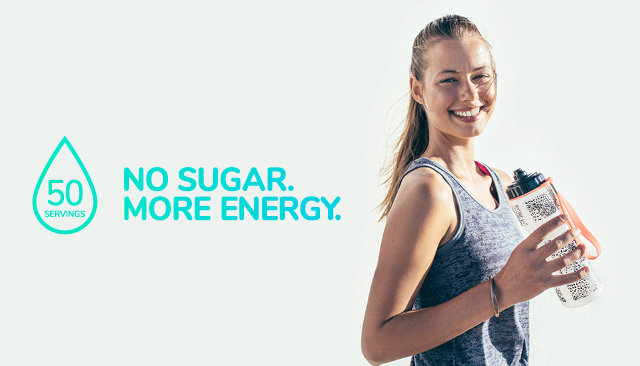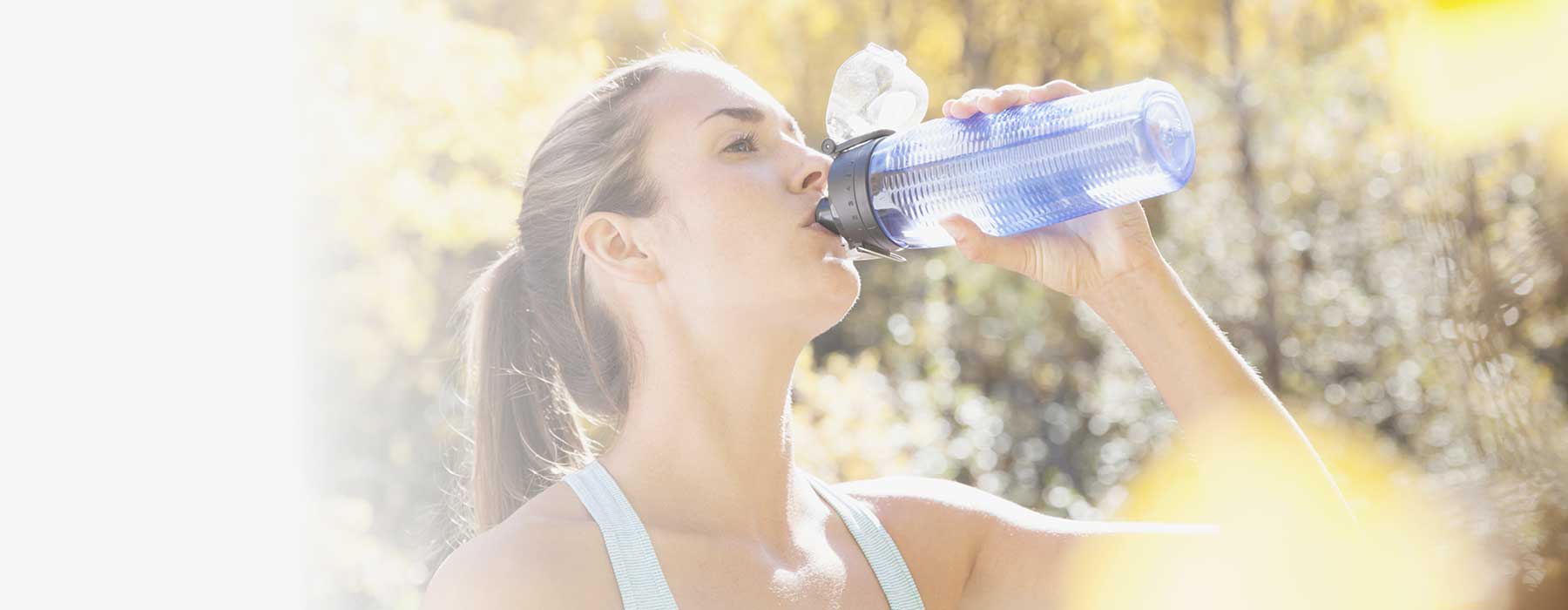
Electrolytes and hydration
Hydration should be simple. If you feel thirsty, drink some water. But while drinking enough water on a daily basis can be half the battle against dehydration, electrolytes, carbohydrates and other minerals are important when it comes to helping your body to retain fluids and to promote recovery.
Staying hydrated is important to keeping yourself healthy, helping your both your mental and physical performance. Chronic dehydration is common, and if you suffer from severe vomiting, diarrhea, or fever, mineral and electrolyte imbalances can occur that can compromise your health.
Drinking water is especially important as we get older. At birth, our body is about 75 to 80% water. By the time you’re an adult, the percentage drops to approximately 60%. The volume of water in your body continues to decrease as you age.
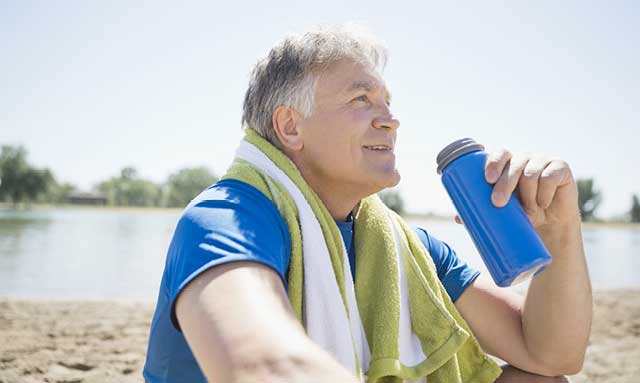
With our increased consumption of distilled, filtered or purified water, coupled with the depletion of minerals from the soil used to grow the fruits, vegetables and grains we eat, it is harder to get the nutrients our body needs to function properly. That is why we often need to supplement our water with added electrolytes to optimise our hydration, enable our muscles to function properly and convert our food to energy.
A simple remedy is to add sea salt to your water, which contains sodium obviously, but is also enriched with iodine and other minerals found in sea water. You can also try coconut water, which contains a variety of electrolytes and is low in sugar. If it’s more than water you’re after, cow’s milk is a rich supply of electrolytes, and also contains carbohydrates and protein, which will help muscle recovery and refuelling after a workout. Try to avoid commercial sports drinks that are marketed as electrolyte drinks, but are often packed with sugar, flavours and other filler ingredients that can actually be detrimental to your health.
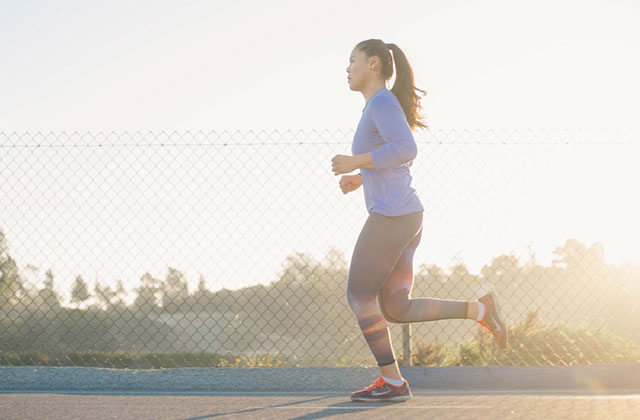
The key electrolytes
Electrolytes are the charged substances that result when dissolved in water. These positive and negatively charged ions can conduct electricity, and are therefore referred to as “electrolytes.” The most important electrolyte for the human body is salt — also known as sodium chloride — but the body also uses potassium, and magnesium to regulate its recovery process.
Sodium and chloride
Sodium and chloride are the major extracellular electrolytes in the human body, sodium providing the positive charge and chloride the negative charge. In addition to providing balance to one another, these ions are essential for maintaining blood volume and pH (Schauss). Sodium and chloride are the main electrolytes lost in sweat. Outdoor activities such as long-distance running, cycling and construction work will require replacing not only fluids but also electrolytes (especially sodium and chloride) to maintain a healthy balance.
Therefore, adding sodium and chloride to the water of individuals who regularly sweat a lot will not only replace the these essential electrolytes, but will also help maintain proper blood osmolality, assuring thirst and kidney mechanisms to maintain adequate blood volume and hydration (Maughan and Shirreffs, 1997).
Potassium
Potassium works with sodium, magnesium and calcium to support the regulation of normal blood pressure, proper heart rhythm, blood sugar regulation and transmission of nerve impulses. It is necessary for cellular contraction and for the proper balance and delivery of glucose into cells.
The normal functioning of the human body depends on an intricate balance of potassium and sodium concentrations. Potassium plays a critical role in nerve impulse transmission, maintaining cellular fluid volume and pH, muscle contraction, heart function and tissue growth and repair.
Additionally, potassium helps our body hold onto calcium, while excessive sodium leads to both potassium and calcium loss.
Magnesium
Magnesium is involved in over 300 enzyme actions in the body. It is necessary for supporting normal heart function, nerve impulse transmission, muscle relaxation and calcium management.
Symptoms of deficiency include muscle tiredness, stress and anxiety, mood imbalance, tension and fatigue. Magnesium can support a restful night’s sleep and can help alleviate muscle cramps at night.
We need a large amount (more than 100mg) of magnesium per day to keep healthy. But it can be hard to get enough magnesium since it is not as prevalent in our diet as other nutrients. Our water supply is often lacking in this mineral, and significant food sources such as green leafy vegetables and legumes are not as prevalent in our diet as they used to be.
These key electrolytes are involved in countless activities essential for life, including energy production, heart rhythm, nerve transmission and muscle contractions. The human body is great at self-regulation and has a number of mechanisms in place to maintain proper electrolyte balance, but if you’re exercising often, working in hot environments or prone to sweating a lot, you may need to take more of these key electrolytes on board, as well as drinking water, to stay properly hydrated.
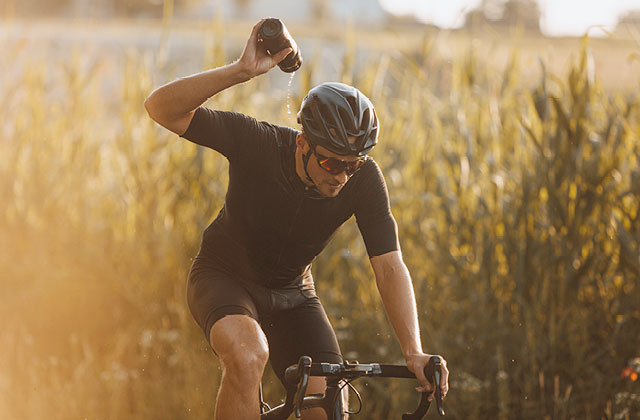
How much water should you drink per day?
The amount of water we need can vary by individual, but it’s generally recommended to drink between 8-10 glasses, or more than 2 litres of water a day. Some people require more or less fluid for hydration depending on various factors, such as body mass, food intake, how much they exercise and the intensity of the training, temperature and other environmental conditions.
Drinking plain water on its own isn’t the most effective way to hydrate. When compared to other beverages like orange juice and milk, our bodies aren’t able to retain plain water as well.
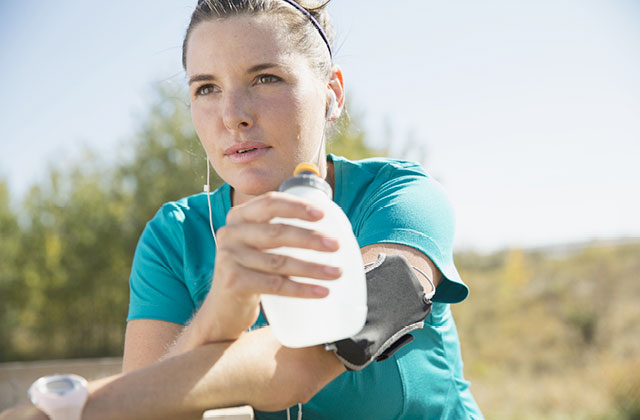
Macronutrients and electrolytes play a role in helping our body absorb and retain any of the water we take in. If you’re trying to stay hydrated, drink your water with a meal or a snack so that there are other nutrients present to help you retain more of the water.
Keep a track of how much water you drink, or fill up a large (reusable) water bottle or two to sip on. It serves as a constant reminder throughout the day. If you’re an athlete or you exercise often, or in hot conditions, you’ll need to add minerals and electrolytes to your water to replenish what’s lost in sweat, which will enable a faster recovery.
It’s also best to spread out your water consumption to help your body with absorption. Start your morning off with a glass of water, maybe with added sea salt and lemon, and make sure you’re consistently drinking water throughout the day. Consistency is key; it’s not a good idea to drink more than a litre in an hour since your kidneys can only remove about a litre of water per hour from the body. Drinking too much water can also lead to what is known as hyponatremia, a condition where the sodium levels in the blood become dangerously low.
For athletes, optimal hydration will help with performance and recovery. For everyone else, hydration is key to health and wellness, and simply feeling good.
Summary
As we increasingly drink filtered or purified water, and consume convenient, processed foods, we are struggling to meet our body’s need for electrolytes, both for performance, and everyday health and wellbeing. This combined with the depletion of minerals from the soil in which we grow our food, has even seen imbalances and dehydration in people who eat a wholefood diet, drink water and lead a healthy lifestyle. Be sure to add things like leafy greens, tomatoes, watermelon and cucumbers, which contain a high water content, this will all count toward your fluid intake and help to restore and replenish electrolytes.
By making good habits with hydration, drinking water enriched with electrolytes, and including more water-rich fruits and vegetables in your diet, you can avoid dehydration and the negative impacts it can have on your health.
-
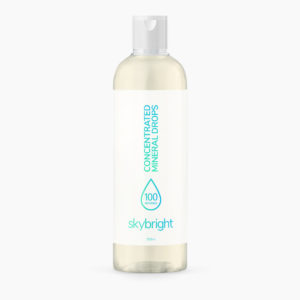 Concentrated Mineral Drops$49.90
Concentrated Mineral Drops$49.90 -
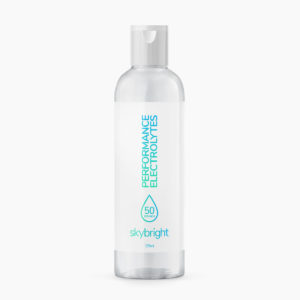 Performance Electrolytes$29.90
Performance Electrolytes$29.90 -
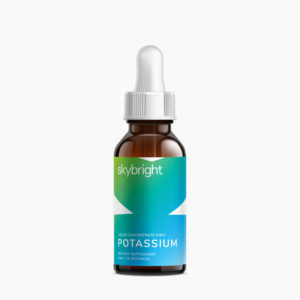 Potassium Liquid Mineral$27.90
Potassium Liquid Mineral$27.90 -
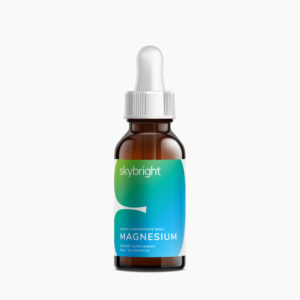 Magnesium Liquid Mineral$27.90
Magnesium Liquid Mineral$27.90
Sources:
Schauss, Alexander G. Minerals, Trace Elements, & Human Health. Life Sciences Press. 1995
Maughan, R. J. and S. M. Shirreffs (1997). “Recovery from prolonged exercise: restoration of water and electrolyte balance.” J Sports Sci 15(3): 297-303.
Rhoades, R. and R. Pflanzer (1996). Human Physiology. Ft Worth, Saunders College Publishing.
Disclaimer:
The information in this article is not intended as a medical prescription for any disease or illness. Nothing stated here should be considered medical advice. Use as directed. If symptoms persist, consult your healthcare professional.

